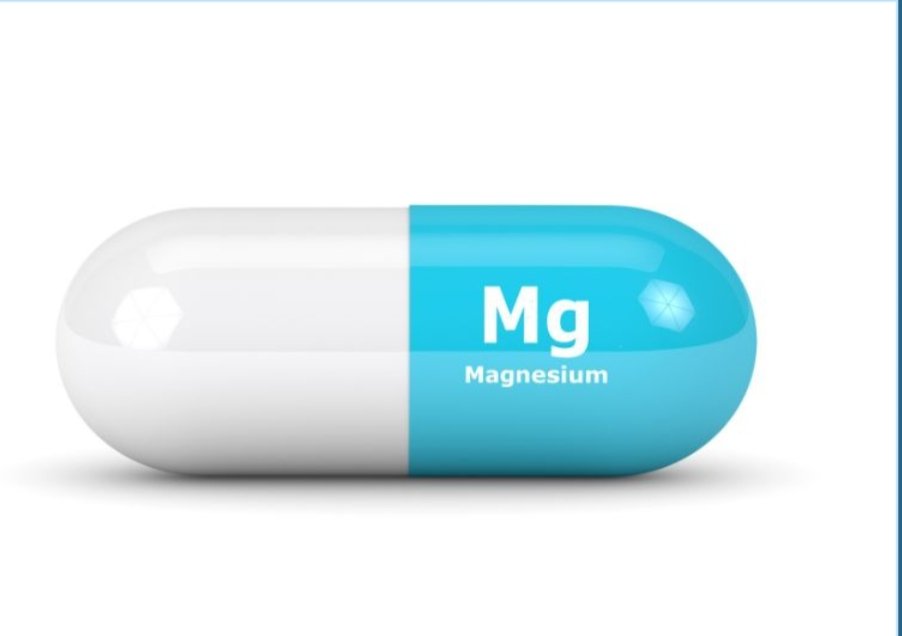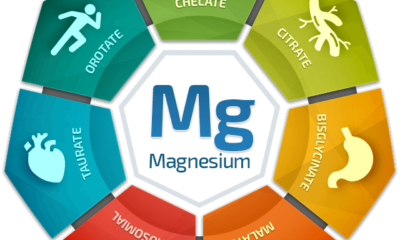Health
How Magnesium Can Help Reduce Stress and Anxiety

In today’s fast-paced world, stress and anxiety have become almost unavoidable. From juggling work deadlines to managing personal life, many of us are constantly in a state of heightened stress. But what if the answer to calming our nerves could be as simple as a mineral found in leafy greens and nuts?
Enter magnesium—a natural remedy that might just be the stress-buster you need. In this blog, we’ll explore how magnesium supplements can help reduce stress and anxiety, providing you with practical tips to harness its calming power.
Understanding Stress and Anxiety
Stress and anxiety are common experiences, but they can have profound impacts on our health. Stress is the body’s reaction to any change that requires an adjustment or response, while anxiety is the feeling of fear or apprehension about what’s to come.
Both can be triggered by a variety of factors, including work pressure, financial worries, and personal relationships. When left unchecked, chronic stress and anxiety can lead to serious health issues such as high blood pressure, heart disease, and mental health disorders.
Understanding the underlying causes is the first step in managing these conditions effectively.
The Role of Magnesium in the Body
Magnesium is a vital mineral involved in over 300 biochemical reactions in the body. It plays a crucial role in maintaining normal nerve and muscle function, supporting a healthy immune system, and keeping the heartbeat steady. But its benefits don’t stop there.
Magnesium is essential for brain health, influencing neurotransmitter function and the hormonal balance that regulates mood. By maintaining optimal levels of magnesium, you can support your body’s natural ability to handle stress and anxiety.
How Magnesium Helps Reduce Stress and Anxiety
Neurotransmitter Regulation
Magnesium plays a key role in the production and regulation of gamma-aminobutyric acid (GABA), a neurotransmitter that promotes relaxation and reduces neuronal excitability.
Low levels of GABA can lead to increased anxiety and stress. Magnesium also influences serotonin, often referred to as the “feel-good” hormone, which helps regulate mood and social behavior.
Cortisol Reduction
Cortisol is known as the body’s primary stress hormone. When you’re stressed, your body produces more cortisol. Magnesium helps regulate cortisol levels, thereby reducing the physical and mental effects of stress. Studies have shown that adequate magnesium intake can lower cortisol levels, helping you stay calm and composed.
Muscle Relaxation
Stress often manifests physically through muscle tension and cramps. Magnesium acts as a natural muscle relaxant, helping to ease tight muscles and alleviate the physical symptoms of stress. By promoting muscle relaxation, magnesium can help you feel more at ease and reduce overall tension in your body.
Sources of Magnesium
Dietary Sources
Incorporating magnesium-rich foods into your diet is a delicious way to boost your intake. Some excellent sources include:
- Leafy Greens: Spinach, kale, and Mustard greens
- Nuts and Seeds: Almonds, cashews, pumpkin seeds, and sunflower seeds
- Whole Grains: Brown rice, quinoa, and whole wheat bread
- Legumes: Black beans, chickpeas, and lentils
- Fish: Salmon and mackerel
- Dark Chocolate: A tasty treat that’s also beneficial!
Magnesium Supplements
If dietary changes aren’t enough, magnesium supplements can be a convenient option. There are various types of magnesium supplements available, each with its unique benefits:
- Magnesium Citrate: Known for its high bioavailability and effectiveness in alleviating constipation.
- Magnesium Glycinate: Gentle on the stomach and ideal for improving sleep and reducing anxiety.
- Magnesium Oxide: Commonly used for digestive issues, though less effective for stress relief.
Choosing the right supplement depends on your specific needs. It’s always a good idea to consult with a healthcare provider before starting any new supplement regimen.
About Miduty, which is No 1 Nutraceutical Brand in India offers a supplement called Magnesium Relax which contains magnesium bisglycinate, a superior form of magnesium that offers enhanced absorption and bioavailability compared to other options available in the market.
Unlike magnesium oxide or magnesium citrate, which can cause digestive issues in some individuals, magnesium bisglycinate is gentle on the stomach and less likely to cause gastrointestinal discomfort.
Practical Tips for Incorporating Magnesium into Your Routine
Adding more magnesium to your daily routine can be simple and enjoyable. Here are some practical tips:
- Dietary Changes: Start your day with a magnesium-rich smoothie featuring spinach, almonds, and a banana. Snack on a handful of nuts or seeds throughout the day. Add leafy greens to your lunch and dinner plates.
- Supplementation: If you opt for supplements, take them consistently as directed, preferably with meals to enhance absorption.
- Lifestyle Adjustments: Complement your magnesium intake with stress-reducing practices such as regular exercise, staying hydrated, practicing mindfulness, and maintaining good sleep hygiene.
Conclusion
Magnesium is a powerful yet often overlooked nutrient that can play a significant role in reducing stress and anxiety. By supporting neurotransmitter function, lowering cortisol levels, and promoting muscle relaxation, magnesium helps your body manage stress more effectively. Whether you choose to incorporate more magnesium-rich foods into your diet or consider supplements, taking steps to ensure adequate magnesium intake can lead to a calmer, healthier you.
-

 Tech1 year ago
Tech1 year agoHow to Use a Temporary Number for WhatsApp
-

 Business2 years ago
Business2 years agoSepatuindonesia.com | Best Online Store in Indonesia
-

 Social Media2 years ago
Social Media2 years agoThe Best Methods to Download TikTok Videos Using SnapTik
-

 Technology2 years ago
Technology2 years agoTop High Paying Affiliate Programs
-

 Tech12 months ago
Tech12 months agoUnderstanding thejavasea.me Leaks Aio-TLP: A Comprehensive Guide
-

 FOOD1 year ago
FOOD1 year agoHow to Identify Pure Desi Ghee? Ultimate Guidelines for Purchasing Authentic Ghee Online
-

 Instagram3 years ago
Instagram3 years agoFree Instagram Auto Follower Without Login
-

 Instagram3 years ago
Instagram3 years agoFree Instagram Follower Without Login























